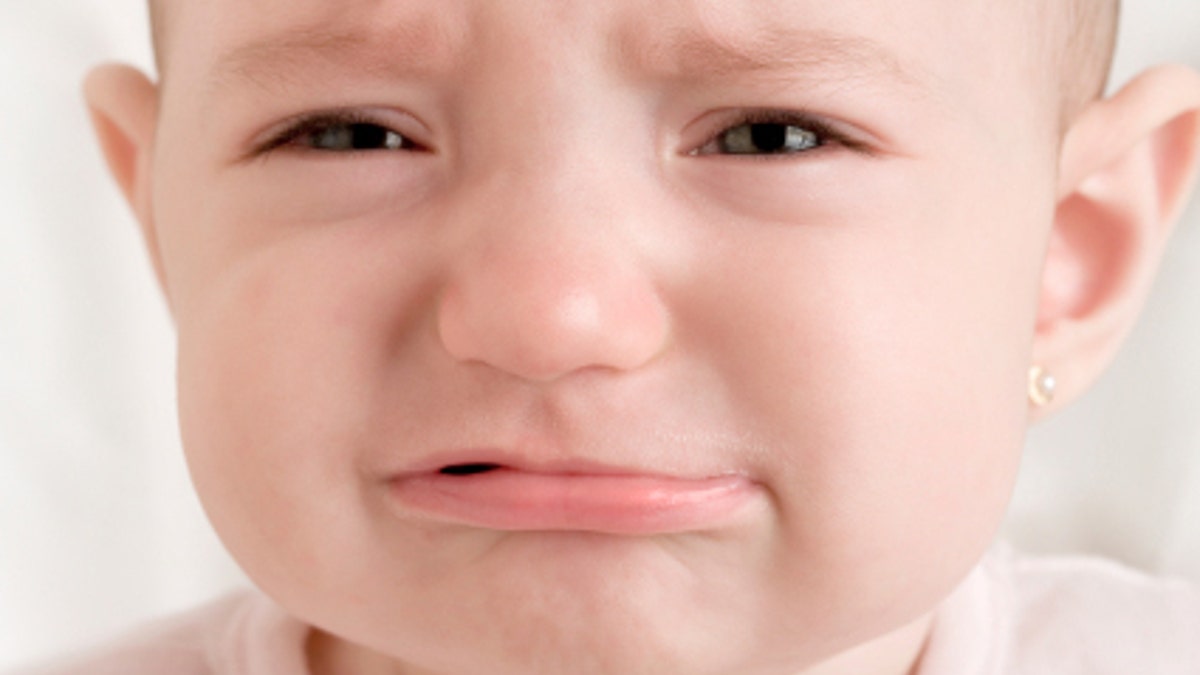
Use of medications to suppress stomach acid in infants has skyrocketed, but the trend is neither based in science nor beneficial to babies, a commentary suggests.
Advertising for acid reflux medications, misinterpretations of infants' normal responses and an over- medicalized culture are to blame, according to Dr. Eric Hassall, a pediatric gastroenterologist from Sutter Pacific Medical Foundation in San Francisco.
One large study of about 1 million infants revealed a seven-fold increase in prescriptions for proton-pump inhibitors (PPIs) for infants between 1999 and 2004, Hassall said. PPIs work by blocking the production of acid in the stomach (Prilosec, Prevacid and Nexium fall into this category).
That study also showed that prescriptions for one of the PPIs, made in a child-friendly liquid, rose 16-fold over the study period, and that PPIs were prescribed to approximately 0.5 percent of babies before they reached 1 year of age, with about half of those prescriptions coming before four months of age.
Spitting up and crying have "long been observed in otherwise healthy, thriving infants," with as many as 40 percent to 70 percent of infants spitting up on a daily basis, Hassall wrote. This reflux is normal, not gastrointestinal reflux disease (GERD).
But parents are bombarded with advertising, leading them to "blur the lines between normality and pathologies," Hassall wrote.
Hassall's commentary is published in the Journal of Pediatrics.
Reasons for over-prescribing
The over-prescribing "owes a lot to advertising, specifically to use of the term 'acid reflux,'" Hassall wrote.
But spitting up is not due to an infant's inability to handle acid; hence, it is not acid reflux disease. Still, parents come into pediatricians' offices claiming that their child has acid reflux, and doctors willingly prescribe an acid-suppressing medicine, Hassall wrote.
Spitting up is due to large amount of food that an infant cannot hold; hence, it is normal and resolves on its own in at least 95 percent of infants, Hassall wrote. Yet crying and spitting up are increasingly "conflated into a diagnosis of GERD."
Excessive crying is all too easily interpreted as signifying stomach distress, but increased crying in the first three to five months is absolutely normal, he wrote. On rare occasions, an identifiable treatable cause, such as allergies to milk or diet, is the reason for excessive crying.
Ineffective treatment, potential harm
There is no science that backs using proton pump inhibitors for infants, but there is "GERD mania," according to Hassall. The largest clinical trial in infants found that a proton pump inhibitor was no better than placebo.
There is danger in reducing normal acid secretion.
"Gastric acid is an early line of defense against infection and important for absorption of certain nutrients," Hassall wrote. A slew of health problems are more common in people who've taken acid-suppressing medications, including acute gastroenteritis, one type of pneumonia and food allergies. Infants might be at risk these illnesses just because they took a proton-pump inhibitor, he wrote.
PPIs could also cause nutritional deficiencies, which are especially worrisome when kids are growing and developing, Hassall wrote.
Another source of harm is misinformation. Hassall criticized a website that advises using doses "far in excess of the doses published in pediatric clinical studies." Parents do not realize that infants metabolize these medicines much more slowly than older kids do, so smaller doses are safer.
Diagnostic testing for GERD in infants is only warranted if symptoms are severe and do not go away, he wrote.
Remedies
To reduce the overuse of acid-suppressing medications, one place to start would be in stopping the routine use of words, such as GERD and acid reflux, in referring to infants.
"These symptoms and signs are just "life," not a disease, and as such do not warrant drug therapy," Hassall wrote.
"I am just as guilty as the mothers, who come in distraught by crying and spitting up," Dr. Beth Tarini, a pediatrician at the University of Michigan, told MyHealthNewsDaily. "This is something that has been medicalized, and we need to tell parents that this is just an unfortunate bump in the road."
Reassurance is key, Tarini said, but she doubts pediatricians will be able to stem demand for the medications. With kids' cough medicines, and the over-treating of ear infections, she said it took the FDA to stop it.
"We may need the FDA to put the final nail on this one, too," she said.
Pass it on: Babies may be treated with acid reflux drugs they don't need, which might raise their risk for nutritional deficiencies or allergies.
- 10 Ways to Promote Kids' Healthy Eating Habits
- 11 Big Fat Pregnancy Myths
- 10 Medical Myths That Just Won’t Go Away
Copyright 2011 MyHealthNewsDaily, a TechMediaNetwork company. All rights reserved. This material may not be published, broadcast, rewritten or redistributed.
